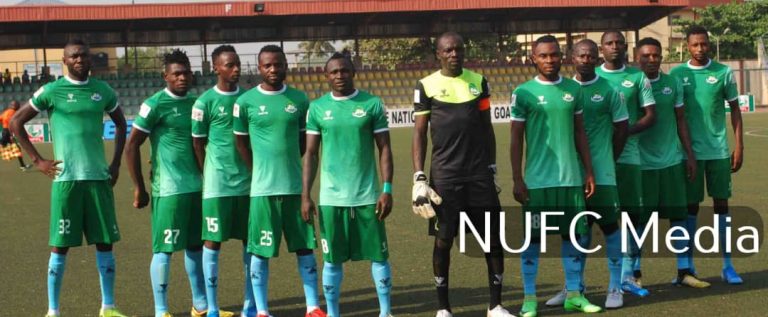US Court Issues FIFA 21-day Deadline To Respond To Samson Siasia’s Five-year Ban Appeal

![]()
By Agency Report
Former Nigeria international and ex coach of the Super Eagles, Samson Siasia could get a reprieve in his five-year ban from football as A United States of America court has issued a 21-day summon to the world football umpire, FIFA to respond to Siasia’s suit challenging his coach licence ban and indictment for bribery.
The summons was issued on August 5, 2021 by the U.S. District Court for the Southern District of New York.
FIFA has to file its response to the suit and serve its answer on the former Nigerian Super Eagles coach within 21 days of being served with the summons, the court clerk, S. James, who signed the document, stated.
Premium Times report that “A lawsuit has been filed against you,” the summons’ opening reads, as the document explains further that FIFA would have been entitled to 60 days to respond to the suit if it were to be the U.S. government, its agency, or employee.
It warned that the consequence of failing to comply with the summons is that a default judgment, a sort of a walkover judicial victory, will be delivered in Siasia’s favour.
”The answer or motion must be served on the plaintiff or plaintiff’s attorney, whose name and address are: If you fail to respond, judgment by default will be entered against you for the relief demanded in the complaint.
“You also must file your answer or motion with the court.”
Siasia, former Olympi team coach that won silver at the 2008 Olympic football event in China, filed his suit at the U.S. court on August 2, 2021, to challenge FIFA’s five-year ban on his coach licence and conviction for bribery.
FIFA in its verdict published on August 16, 2019, in addition to placing a lifetime ban on Siasia’s coach licence, imposed a monetary fine of 50,000 Swiss Francs on him.
Following his appeal against the decision, the Court of Arbitration for Sports (CAS) panel, in its decision handed down on June 21, 2021, reduced the lifetime ban on his coach licence to five years, and dismissed the monetary fine.

The CAS panel partially upheld the guilty verdict, attacking some fundamental aspects of FIFA’s verdict.
It, for instance, described the lifetime ban with the monetary fine of 50,000 Swiss Francs imposed on Siasia by FIFA, as cruel and unusual punishment.
It added that the punishment was disproportionate to the offence of bribery.
Still dissatisfied with the CAS panel’s decision, Siasia filed his suit at the U.S. court seeking an annulment of “the lifetime or any ban” on his coach licence.
He also wants the court to order FIFA to make “global public retraction of guilty verdict of accepting bribe” handed down against him.
Disturbed by the reputational and professional injury the FIFA’s verdict has caused him, Siasia also seeks “compensatory and punitive damages, attorneys’ fees and court costs” in respect of each of the four charges he raised against FIFA.
Siasia’s travails
Siasia’s travails started when he was approached by a match-fixer, Wilson Perumal, in 2010, offering him a job with an Australian club.
In email conversations between the two of them, Perumal revealed how he intended to run the club fixing matches behind the scene without involving Siasia, who would only be expected to strictly face his job
as the head coach.
Despite the match-fixing clauses in the offer, Siasia accepted to play along.
The email conversations quoted copiously in his suit, show Siasia agreeing to play along while also being cautious about a backlash it may bring.
He proposed the monetary terms of the contract that parties had to agree to for him to take up the job.

“Am I going to pay taxes on this amount if agreed and what about signing on fees, accommodation, and car?” Siasia asked.
“Also need to know about flight tickets for me and my family. I will be waiting for your soonest response because I have other offers I am looking at,” Siasia added in one of the correspondences.
At the end of the 33 emails exchanged between them on the matter, the contract failed to come to fruition due to the inability of the parties to agree on all the terms proposed by Siasia.
Perumal was later reported to have been arrested by the police in Finland and convicted of bribery and conspiracy to match-fixing.
While cooperating with Finnish prosecutors, Perumal turned over his electronic devices containing contact names and email and text communication to the authorities.
Finnish authorities then turned over the cache of information to FIFA which then went on to convict Siasia based on the email communication between him and Perumal.
In FIFA’s verdict handed down at the end of the trial, Mr Siasia, who had at different times handled various Nigerian national teams, was barred from coaching for life.
But the coach licence ban was reduced to a five-year ban and his initial 50,000 Swiss Francs fine totally reversed.
Siasia’s grievances against FIFA
Siasia, through his team of lawyers led by Nitor Egbarin, filed his suit to challenge the trial on the bribery charge and the life-ban, as well as the subsequent five-year ban imposed on him.
In his suit, he accuses FIFA of committing four principal breaches in arriving at its decision in August 2019.
The four charges raised by Siasia are: violation of his procedural rights, a breach of his property right as a U.S. citizen, infliction of emotional distress on him, and negligence.
He says he was not aware of the bribery charge investigated by FIFA until the verdict imposing a life ban on him was published on August 16, 2019.
He explains that as someone using numerous email accounts, he did not have any cause to check the email which FIFA claimed to have sent the bribery charge to, to enable him to appear to defend himself during the investigations.
“FIFA convicted Siasia for bribery without giving him an opportunity to confront and cross examine adverse witnesses,” the court document reads in part.
Besides FIFA’s alleged failure to give adequate notice of the charge of bribery, Siasia says the world football body also failed to properly investigate the bribery charge.
His lawyers argue further that FIFA convicted Siasia of bribery “based on grossly insufficient evidence, consisting exclusively of emails which the creators or recipients never explained to FIFA”.
In addition, he accuses FIFA of “improperly charging a crime of commercial bribery which is non-existent in the place the acts occurred.”
This, he explains, is because Atlanta, Georgia, his place of residence in the U.S., does not criminalise commercial bribery even if the evidence supporting it exists.
He adds that FIFA, in convicting him, and CAS in partially upholding the world football body’s verdict, only relied on Swiss Bribery law encoded in Article 11 of the FIFA Code of Ethics (FCE) 2009, which he argues is not applicable in Atlanta, Georgia.
Premium Times




